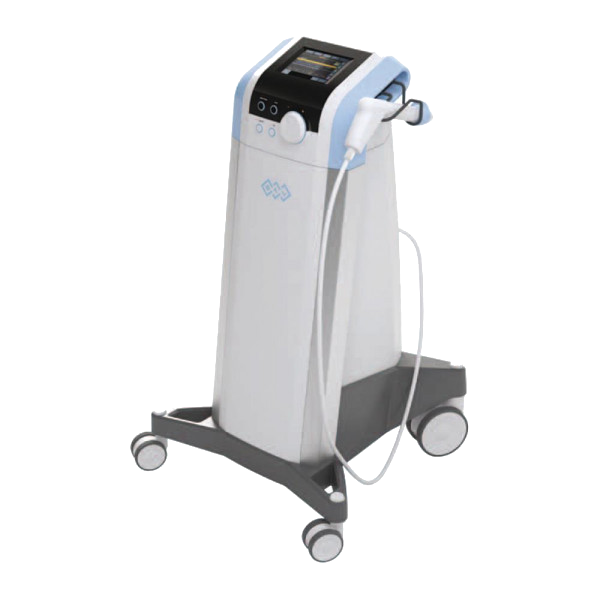Shockwave Therapy
Shockwave therapy is non non-invasive, fast and effective treatment often used by Healthcare professionals.SHOCKWAVE THERAPY

Shockwave therapy, also known as extracorporeal shock wave therapy (ESWT) or radial shockwave therapy, is a non-invasive medical treatment that uses acoustic waves to stimulate healing and reduce pain in various musculoskeletal conditions. This therapy has gained popularity in physiotherapy and rehabilitation settings due to its potential benefits.
Here are some of the benefits of shockwave physiotherapy:
- Pain Reduction: Shockwave therapy is often used to alleviate pain associated with various musculoskeletal conditions, such as tendinopathies, plantar fasciitis, and calcific shoulder tendinosis. It helps reduce pain by promoting tissue healing and reducing inflammation.
- Improved Blood Circulation: Shockwaves stimulate blood flow to the affected area, which can accelerate the body's natural healing processes. Increased circulation can help deliver nutrients and oxygen to the injured tissues and remove waste products more efficiently.
- Enhanced Tissue Regeneration: Shockwave therapy has been shown to stimulate the production of collagen, a protein that is essential for the repair and regeneration of damaged tissues. This can be particularly beneficial for treating chronic injuries and promoting tissue healing.
- Non-Invasive: Unlike surgical interventions, shockwave therapy is a non-invasive treatment, which means it does not require incisions or anesthesia. This makes it a relatively low-risk option for those seeking relief from musculoskeletal pain.
- Short Treatment Sessions: Shockwave therapy sessions are typically short, often lasting 10 to 15 minutes, and they can be performed in an outpatient setting. This makes it a convenient option for individuals with busy schedules.
- Limited Side Effects: While some individuals may experience mild discomfort during or after a shockwave treatment session, serious side effects are rare. It is generally well-tolerated, and most people can return to their normal activities immediately following treatment.
- Alternative to Surgery: In some cases, shockwave therapy may be considered as an alternative to surgery, especially for chronic conditions. It offers a non-surgical approach to pain relief and tissue healing.
- Reduces the Need for Medications: By addressing the underlying causes of musculoskeletal pain and promoting tissue healing, shockwave therapy may reduce the reliance on pain medications, which can have potential side effects and risks.
- Customizable Treatment Plans: Physiotherapists or chiropractors can customize shockwave therapy treatment plans based on the individual's condition and response to treatment. This allows for a more personalized approach to care.
SHOCKWAVE THERAPY INDICATIONS:
- Chronic Musculoskeletal Pain Conditions
- Plantar Fasciitis & Heel Spurs
- Tennis Elbow & Golfer's Elbow
- Rotator Cuff Injuries
- Scar Tissue Treatment
- Carpal Tunnel
- Scar Tissue management
- Jumper's Knee
- Morton's Neuroma Exostoses of Small Hand Joints
- Achilles/Patellar/Hamstring/quadriceps Tendinopathies
- Shoulder Calcific Tendonitis
- Impingement Syndrome
- Sports Injuries-sprain,strain,bruising
- Shin Splints
- Bursitis
- Hamstring Pain
- Ankle pain, Foot Pain, Back Pain, Neck & Shoulder Pain Overuse Injuries (RSI)
- Trigger Point Therapy
- Bunions
It's important to note that the effectiveness of shockwave therapy can vary depending on the specific condition being treated and the individual's response to treatment. Additionally, not all musculoskeletal conditions are suitable for shockwave therapy, and it may not be recommended for everyone. Consult with a qualified physiotherapist or healthcare provider to determine if shockwave therapy is an appropriate option for your particular condition and to discuss potential risks and benefits.

